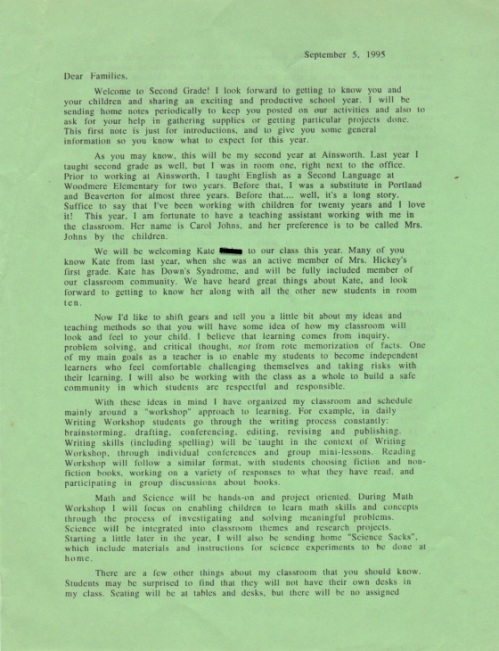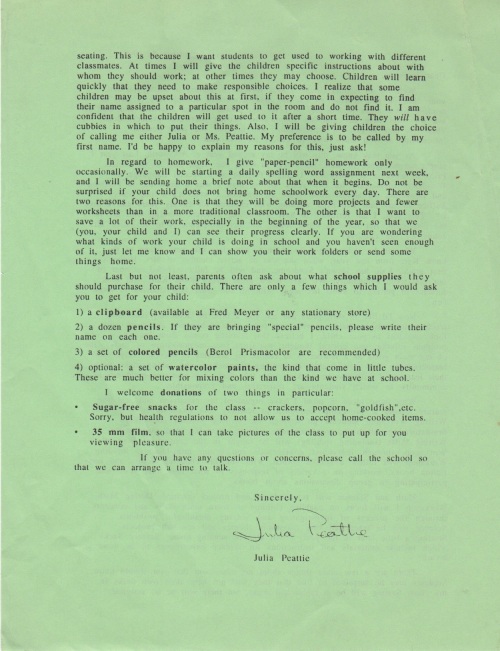The basic facts are: Julia hadn’t been teaching very long, she was learning to do it, and it was a mixed first and second grade, so they were semi-literate. There were some kids who obviously couldn’t read at all, but most could read a little bit. What really knocked me out was that instead of sort of glorifying the teacher’s role, giving out apples or being very smiley……You’ve got a lot of power, and you’ve got a lot of conspicuousness, and it would be very easy to build the role.
What she did was to deconstruct the job in such a way that the role, as usually thought of, disappeared. She provided every kid in her classroom with a couple of sheets of paper stapled together, and at the top it said: “Animal I am going to Study” and then it had categories of ideas about this animal. So she had given them a topic and a place to record it which was their own personal piece of paper, and I think that was important. Then she provided them with resources. She had gone all around borrowing books about animals, so the place was full of stuff, and so what she had done was to make the class into a collaborative, collective, thing, and the kids were running around thrilled, and helping each other. “Here’s something about aardvarks for you!” sort of thing; she had just totally reconstructed the thing from the top-down dominated-by-the-teacher kind of thing, to one having a totally different structure.
The kids could and did come and ask her questions, but she was a facilitator, absolutely just a facilitator. I thought it was just brilliant. The kids were enjoying it, but that’s not the only reason I thought it was great. It was putting things where they ought to be. The mental energy had been transferred to the kids, and then she provided the resources so that they could do something about it.
A Newsletter from the time:



Nowadays this would be called collaborative, project based learning, and a whole lot of other buzzwords and be considered pretty cutting edge. Julia was ahead of her time.
You have lived large Lisa Peattie and have passed on your love and devotion to your Children.
Dear Professor Peattie,
What a fascinating blogsite this is — thank you. I’m a visiting Postdoc at MIT researching the 1960s era Inner Belt fight and I would really appreciate a chance to talk to you about your involvement in the anti-highway movement and particularly the Cambridge Committee on the Inner Belt (later Urban Planning Aid). I have read through several of the Cambridge Chronicle’s early newspaper accounts as well as notes from UPA’s archive at UMASS Boston. I hope that you might be willing to talk to me, even briefly, about any memories you have of your activism within this seminal regional social movement. Please let me know if I can be in touch with you more directly.
Best, Karilyn Crockett (kcrock@mit.edu; 781 626-2028).